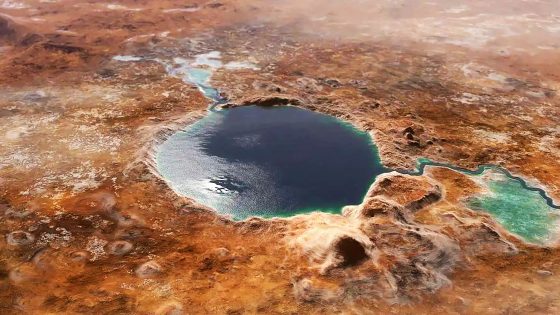The discovery of liquid water on Mars is a groundbreaking revelation. A recent study, published on January 24, 2025, reveals ancient wave ripples in Martian rocks, indicating that the planet once had standing water billions of years ago. Could this mean Mars was once hospitable to life?
- Evidence of ancient water on Mars.
- Wave ripples indicate past liquid lakes.
- Mars had a warmer climate historically.
- Implications for microbial life possibilities.
- Future missions may focus on ripple analysis.
- Understanding climate evolution is crucial.
What the Discovery of Liquid Water on Mars Means for Future Exploration
What if Mars was once a thriving planet with liquid water? This recent discovery suggests just that. The ancient wave ripples found on Mars indicate a time when the climate was warm enough to support shallow lakes. This finding opens up new avenues for understanding Mars’s past and its potential for life.
Key Insights from the Ancient Ripples on Mars
The ancient ripples provide valuable insights into Mars’s climate and potential habitability. Here are some key points:
- The ripples suggest the presence of a shallow lake approximately 3.7 billion years ago.
- Liquid water is essential for life, raising questions about microbial existence on Mars.
- The findings could guide future missions in locating resources for human exploration.
- Understanding Mars’s past climate helps scientists predict its future.
How Ancient Water Shapes Our Understanding of Mars
The presence of liquid water on Mars indicates a significantly thicker atmosphere in its past. This could mean that Mars was once warm enough to support life. As scientists study these ripples, they are piecing together a timeline of Mars’s environmental shifts, which could reveal how long the planet maintained habitable conditions.
The Importance of Future Mars Missions
Future missions to Mars will likely focus on analyzing these ripple formations in greater detail. By searching for chemical signatures that indicate past life-supporting conditions, scientists hope to unlock more secrets of the red planet. The Perseverance rover is already collecting samples that may contain traces of ancient microbial activity, aligning with NASA’s goal of bringing Martian samples back to Earth for further study.
Implications for Human Exploration of Mars
Understanding the history of liquid water on Mars is vital for planning crewed missions. Water is not only essential for drinking but can also be converted into oxygen and rocket fuel. Identifying ancient water sources or ice deposits could significantly aid long-term human habitation and exploration of Mars.
































